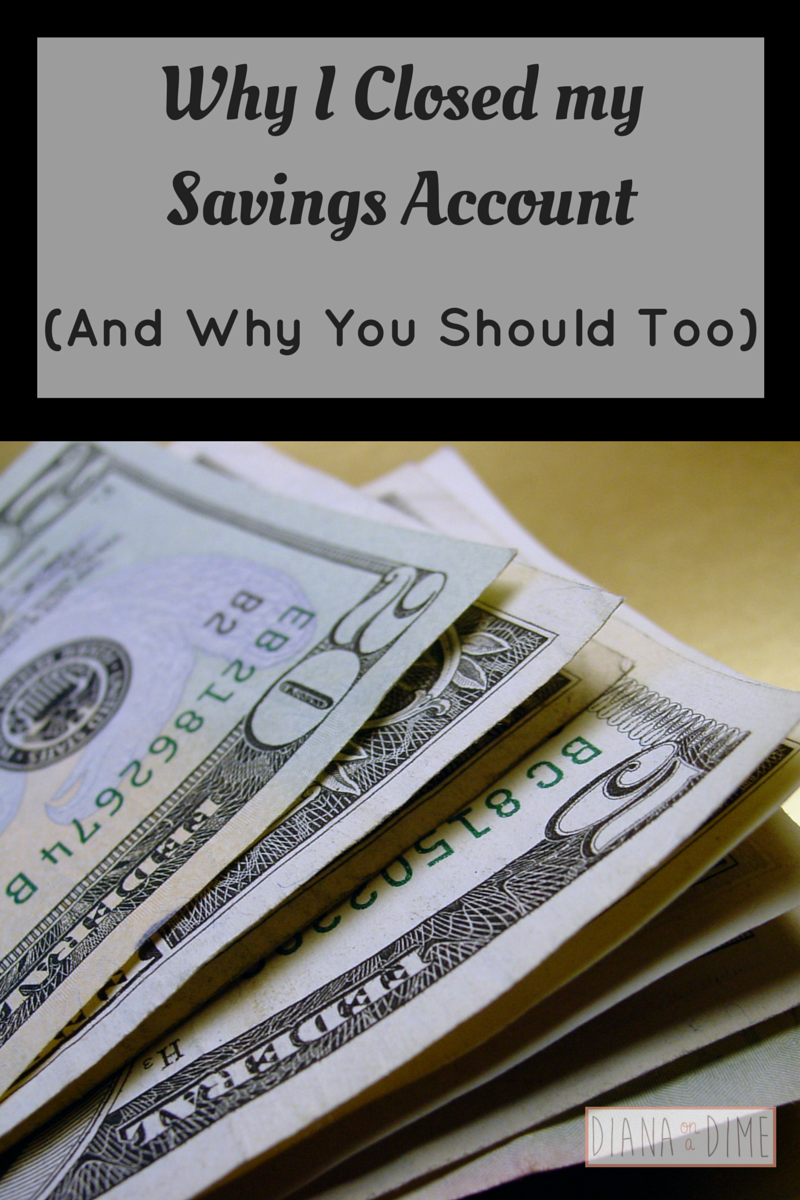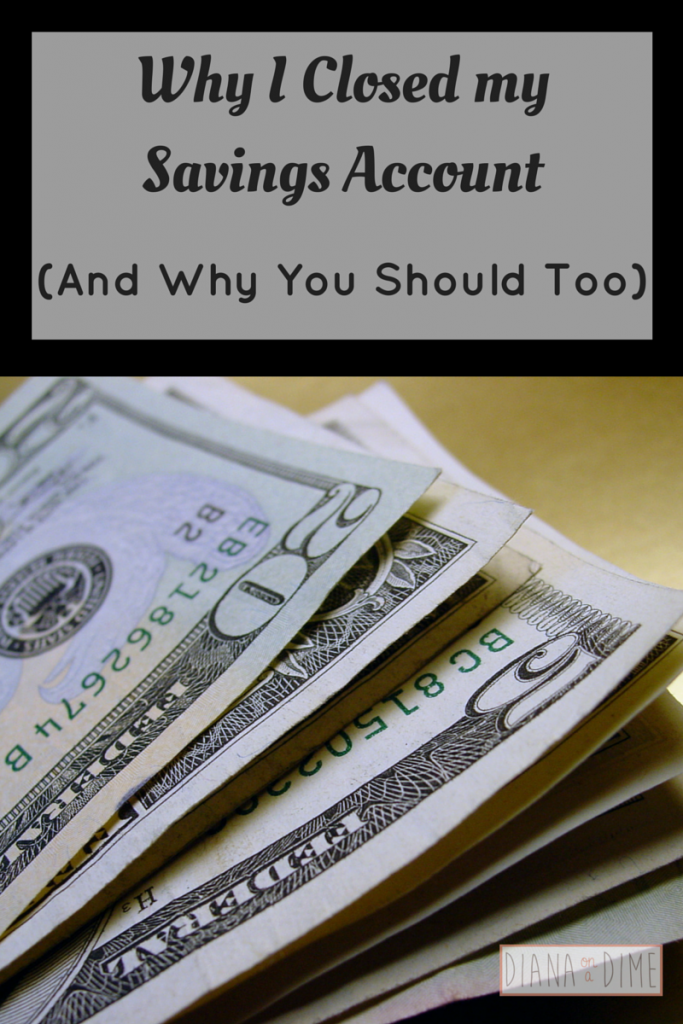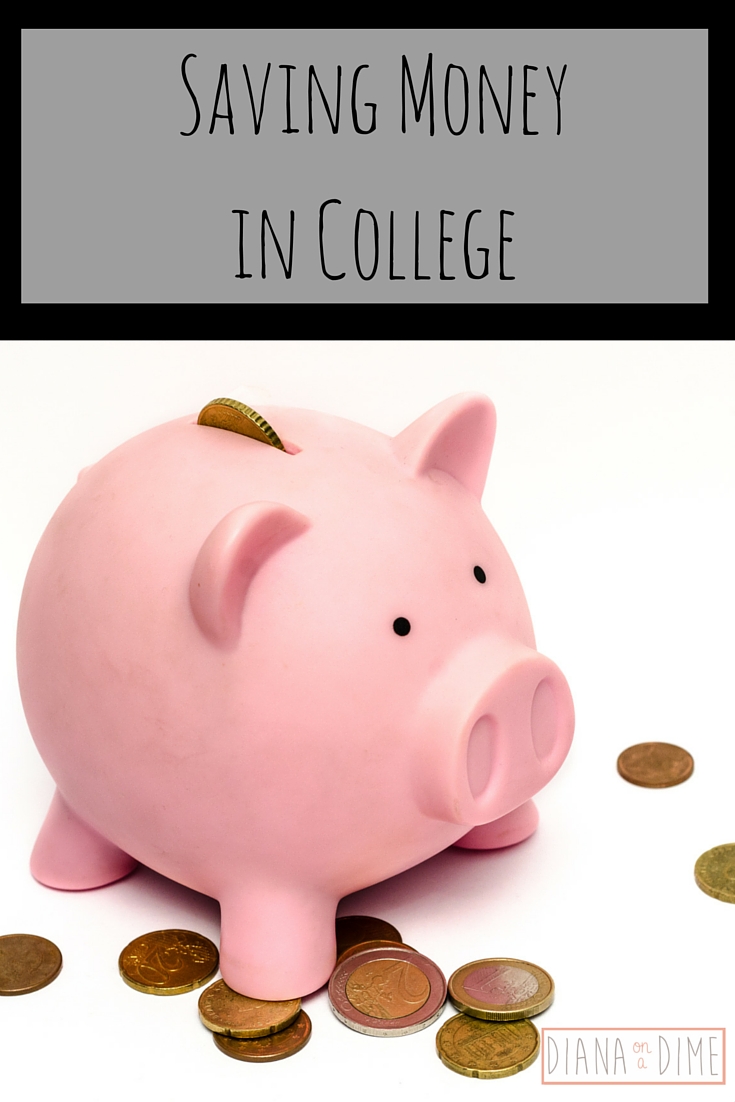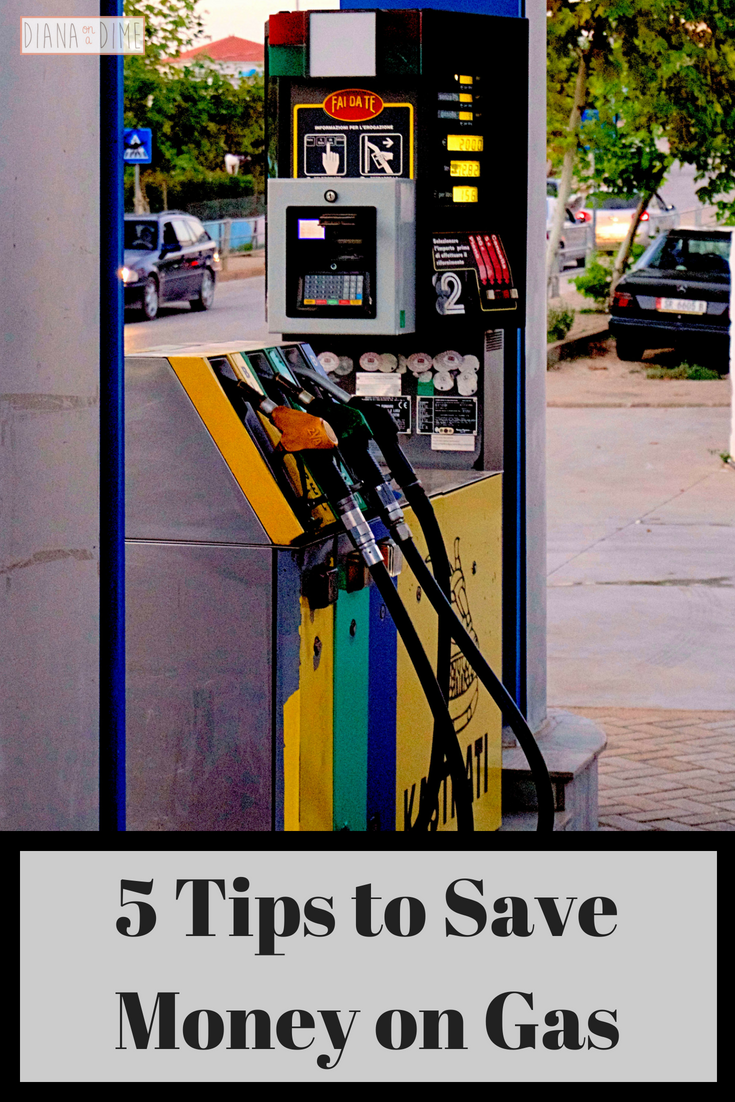Why I Closed my Savings Account
This post may contain affiliate links. Check out my Disclosure Policy for more information.
I know this sounds crazy. Why would I ever close out my savings account at my bank, that’s just crazy talk. Even the nice man who helped me close my account looked at me like I had 8 heads. This was a long decision in the making for sure, I’m all about saving my money. Even during grad school, when I was making about $1,000 a month give or take, I managed to put away 10% of my income each month. I consider placing my money into savings a monthly bill that needs to be paid. That’s why saving is always a line item in my budget, you can get my spreadsheet that helps you budget, here! Saving is key to future success, so even though I have a ton of student loan debt, I still put away money for savings each month. However, I realized that my bank’s saving account was earning me nada in interest, seriously 0.01% is getting me nowhere. Yes, my money was safe and it was earning something, but why not earn a whole lot more.
This is when I started looking into other options. My savings account grew quite a bit while I was in grad school. I was shocked how much it really adds up when you start adding to it every month, definitely something I wish I did sooner. Anyway, I started doing some research and found online banks and investing. Investing scared me, I had heard so many stories about people losing all of their money this way, but I saw the interest rates and was intrigued by it. Online banks I was interested in, but concerned about the security. These seemed to be the two best options in order to earn the most interest on my money.
As I did more and more research, I found that online banks are great for savings accounts. They provide much higher interest rates, like 0.99%, and they make it a little more difficult to access your money. At first, I thought this was a negative, and it definitely can be if an emergency comes up and you need those funds. Personally, I don’t want easy access to this savings account. I don’t want to be able to quickly withdraw funds. Out of sight, out of mind type thing. The purpose of this account is to save, save, save and I can’t do that if I have easy access to that money. Another concern I had was fees associated with depositing money into the account. Most of the online banks I researched have free options that are really easy to use. After completing my research, I have decided to use ally for my online banking. They have an easy to use website, FDIC insured, provide 0.99% interest rate, have a mobile app. I really could go on and on, I’m very happy that I decided to make this switch and excited to see my money grow! Update July 2019: Ally now offers 2.1% on their savings accounts!
Now, the scary part. Investing. I began researching about investing, reading blog posts, asking people I knew about it. I was so hesitant to invest. Even after researching, I still didn’t truly understand it. I knew there was no way I’d be able to handle investing because I didn’t understand it well enough. There’s just so much involved with investing money. At the time, I didn’t want to pay a fee to have someone create a portfolio for me. That seemed like a waste of money and I wasn’t sure if I could trust someone else with my money. That’s when my friend recommended I look into Betterment which is a “robo-advisor” – a program that manages investments just like a human, but at a much lower cost. This I wasn’t sure about. There is a fee that you pay each month, which I wasn’t really pleased with. I mean, I’m supposed to be making money, not spending it. What I quickly realized is that the return I will be making on the money is far more than the fee that is charged. Betterment uses two tricks to help maximize profits: “rebalancing”, and “tax-loss harvesting”. Simply put, since investments change over time, rebalancing is when you rearrange your investments after a time period so that your holdings are still going to make the most for you. Tax-loss harvesting is much more complex and is essentially selling one of your badly performing stocks so that you can claim tax breaks with that money, offsetting the loss of that stock. You then use the money from the sale to buy better performing stocks. Since Betterment does these automatically for me, I don’t have to even think about any of that and I’m still getting the benefits.
Next, I wanted to check if Betterment theoretically will make me a positive return on my investment. Their average return since 2010 is around +9.9% yearly (90/10 stock bond mix), and the highest annual fee amount is 0.35% for investments under $10,000. The fee depends on how much you are investing, the more you invest, the lower the percentage. The fee really does pay for itself in how easy it makes investing; they create a portfolio of stocks (more risky) and bonds (safer) for you that you can tweak as much or as little as you want. Everything is completely automated for you, so you get to sit back and watch your money grow while they do all the work. For me, this was worth it. I couldn’t get a good enough handle on everything there is to know about investing to feel comfortable doing it on my own.
Obviously, it is important to remember that with any investment comes risk, and that I am investing my money with a long term goal in mind. I’m not planning on taking this money out in a few years, it will sit in this account getting returns for a long time to come. If you are investing, just remember that it’s possible to lose some years, like during the recession when most investments did badly. Fast forward 5 years, and the market is higher than ever!
Here’s a chart that I created to illustrate the estimated 5 year return on an initial $5,000 deposit based on rates for Betterment, Ally, and Chase:
The information above is an estimate. Betterment is based on the 5 year historical return data of a 90% stock, 10% bond mixed portfolio. The Chase and Ally figures are the guaranteed interest rates at the time of posting (interest rates are subject to change). Please note that all of the numbers are theoretical, and are not risk adjusted.
I’m excited to see how much my money grows now that I took it out of my bank’s savings account. The key is thinking about long term, this compounding interest will make me much more money than my bank’s account ever would. How have you managed your money to make more interest?





